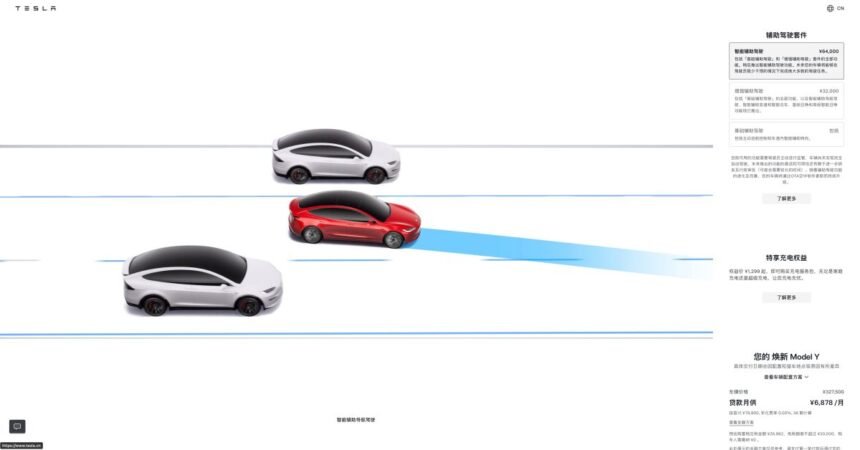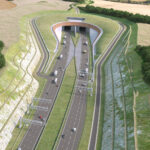Tesla Faces Scrutiny in China Over Full Self-Driving System
After a tumultuous rollout of its “Full Self-Driving” (FSD) system in China, Tesla is making changes in response to increased regulatory scrutiny. The company has decided to drop “FSD” from the name of the system as it navigates challenges in the Chinese market.
Last month, Tesla introduced a limited version of its FSD system in China, allowing driver-assist features to be used on urban roads in the country. This move came after competition from Chinese domestic manufacturers like BYD, which offered smart driving features for free to all its vehicles through a software update.
However, Tesla drivers in China quickly faced issues with the FSD system, receiving fines for violating traffic laws. The system struggled to differentiate between bike lanes and right turn lanes, leading to multiple infractions for drivers. These fines could potentially result in license suspensions if enough points are accumulated.
In light of these challenges and new regulations for connected vehicles in China, Tesla recently rolled back its FSD rollout in the country. The company had initially announced a month-long free trial but decided to halt the program after just a week.
In addition to these operational changes, Tesla is also adjusting the naming conventions for its driver-assist systems in China. The company has removed “FSD” from the title, rebranding the system as “Intelligent Assisted Driving” instead of “FSD Intelligent Assisted Driving.” This move reflects a broader trend in the industry to clarify the capabilities of such systems and set more accurate expectations for users.
Tesla has faced criticism in the past for the misleading name of its FSD system, which does not actually enable fully autonomous driving. In the US, the company changed the name to “Full Self-Driving (Supervised)” to emphasize that drivers must still supervise the vehicle while the system is active.
Despite the name change, the pricing for the system remains the same at 64,000 yuan (approximately $8,800 USD). Tesla has also removed the term “autopilot” from the Chinese name of its lower-level driver-assist software, aiming to address concerns about the colloquial interpretation of the term.
Tesla plans to reintroduce its driver-assist system in China once it obtains the necessary approvals. The recent adjustments in naming conventions may be part of the regulatory requirements imposed by Chinese authorities.
In conclusion, Tesla’s response to the challenges faced in China demonstrates the company’s commitment to adapting to local market conditions and regulatory standards. By making changes to its FSD system and naming conventions, Tesla aims to improve the user experience and comply with evolving regulations in the Chinese market.







